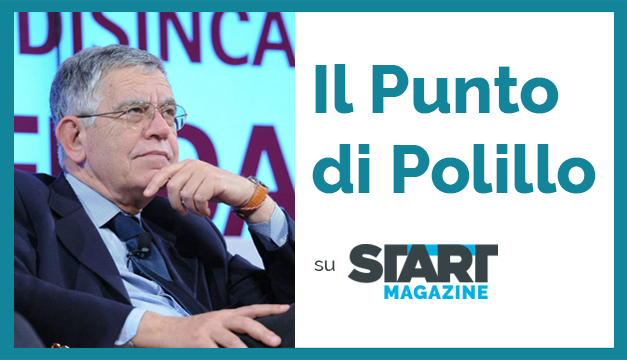Subdued praise of Draghi (who spanks European myopia)

Gianfranco Polillo comments on the answers of the Prime Minister, Mario Draghi, during the Question time in the Chamber on Europe and European accounting rules
We confess that it was a long time since we listened to such clear and direct words. And it is useless to add that it gave us immense pleasure. Finally, vis-à-vis Europe is emerging from that diplomatism which, in the past years, has certified a role of subjection of Italy, with respect to substantially wrong policies and the path to be followed is clearly stated. This has even more value when this commitment is made by the Prime Minister, Mario Draghi, not during a press conference, but in the seat – the Chamber of Deputies – which represents the place of popular sovereignty.
In his speech , during the "Question time", the parliamentary institution that allows the individual deputy to speak directly with the representatives of the Government, Draghi replied on the budget rules, recalling what had happened, but above all what must happen, once passed the pandemic. He then mentioned the old rules put in mothballs, to allow individual countries to face the crisis, ready to be reactivated only when the European economy, at least this is the commitment of the Commission, had returned to pre-crisis levels. Estimated time: not before 2023.
A horizon, therefore, still far away: given the uncertainties that still accompany the course of the crisis. In Europe, however, the debate has not yet begun, even if there are signs here and there, which are somehow alarming for their lack of foresight. To which Mario Draghi, with a calculated advance game, wanted to respond with determination: “I want to be very clear about this: it is beyond question that the rules will have to change”. Then he reiterated: “My line – and it is not from today, but for some time on this issue – is that the current budget rules were inadequate and are even more inadequate for an economy emerging from a pandemic. In the coming years we will have to focus above all on a strong relaunch of economic growth, which is also the best way to ensure the sustainability of public finances ”.
The clarity of the judgment on the inadequacy of the old rules is impressive: they were in the past, they are even more so after the blows inflicted by the pandemic. Hence the need for a profound reform: “The revision of the rules – adds the Prime Minister – must therefore ensure wider margins of action for budgetary policy in its counter-cyclical stabilization function. In particular, we must incentivize investments, especially to foster digital and ecological transformation. At the same time, the new rules must also aim to reduce the growing divergences between the economies of the Member States and to complete the European institutional architecture ”.
There is therefore a strong continuity with the Next generation EU philosophy. Other than a simple parenthesis, not replicable, according to the diktat of Marc Rutte, the Dutch leader, who aims to become the leader of the "frugal". Of those countries which, in Europe, have found America, but which are not in the least willing to contribute to a common destiny. From this point of view, Draghi's appeal is severe, when he says that it is necessary to reduce the "divergences between the economies of the member states". Divergences which have progressively increased since the 2008 crisis and which will grow further, if not countered, following the pandemic.
At the beginning of the new millennium, the convergence process, which was one of the main points of the European dream, had progressed, albeit in an unsatisfactory way. But after the crisis brought about by the failure of Lehman Brothers, it had turned into its opposite. Countries that had managed to withstand external shock better, and others that, on the other hand, had been forced to suffer the consequences. Internalizing the effects: especially in terms of higher unemployment and greater social malaise. Especially to the detriment of women and the younger generations.
Even before Covid-19, the European geographical map was patchy. With the Northern countries that could boast a frictional unemployment rate and the Mediterranean ones with a burden equal to double if not triple. German unemployment rate in 2019, according to data from the Commission itself: 3.1; Dutch: 3.4. Greece: 17.3; Spain 14.1; Italy 10 and France 8.5. With a long-term unemployment rate close to 1 per cent, for the former and from 3.4 per cent in France to 12.2 per cent for Greece.
Finally, not to mention the great changes that the short-sightedness of some European leaders fails to grasp. The illiberal capitalism of countries such as China, Russia, Turkey or Iran is marching by leaps and bounds and upsetting the world balance. From last year, until 2026, the average annual growth rate of the Chinese economy alone, predicted by the IMF, is equal to 5.2 per cent against an average of the Eurozone and the USA which barely exceeds 1 per cent. A new jolt in the great world balances, which have as their foundation the specific weight, in terms of GDP, of each reality. And to the rebalancing of which the EU can only contribute by accelerating the construction of that “optimal monetary area”, longed for. The institutional architecture mentioned by the Prime Minister. But that the new "sleepwalkers" of the third millennium fail to glimpse.
This is a machine translation from Italian language of a post published on Start Magazine at the URL https://www.startmag.it/economia/sommesso-elogio-di-draghi-che-sculaccia-le-miopie-europeistiche/ on Wed, 12 May 2021 19:37:52 +0000.
